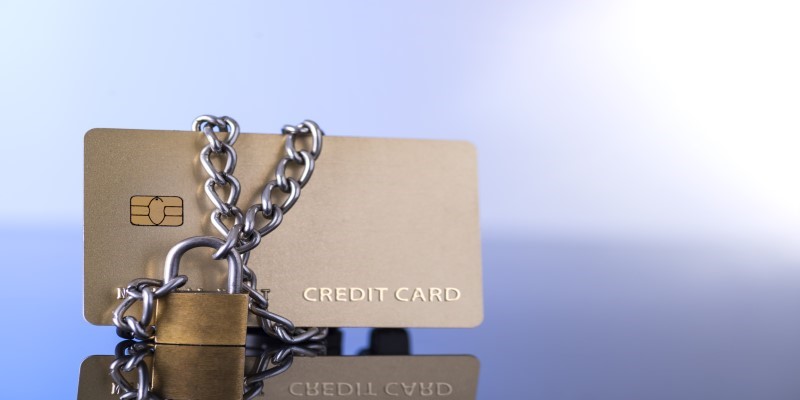When it comes to credit scores, misinformation abounds, leading many individuals to make decisions based on myths rather than facts. In this article, we will explore and debunk ten prevalent credit score myths, providing you with accurate information to help you navigate the complex world of credit more effectively.
1. Closing Credit Card Accounts Improves Your Credit Score
One common misconception is that closing credit card accounts can boost your credit score. However, this is not necessarily true. Closing accounts could potentially harm your score by reducing your available credit and increasing your credit utilization ratio. It's essential to understand how closing accounts may impact your credit score before taking any action.
- Consideration: Evaluate the age and payment history of the accounts you're considering closing to assess their impact on your credit score.
- Caution: Closing accounts impulsively without considering their long-term effects on your credit utilization ratio may lead to unintended consequences.
2. Checking Your Credit Score Lowers It
Many people believe that checking their credit score will cause it to decrease. Fortunately, this is a myth. When you check your credit score, it's considered a "soft inquiry," which doesn't affect your score. Only "hard inquiries" from lenders, such as when applying for a loan or credit card, can impact your score. Regularly monitoring your credit score is a responsible financial habit that can help you stay informed about your credit health.

- Consideration: Take advantage of free credit monitoring services offered by many financial institutions to keep track of changes in your credit score.
- Caution: Avoid excessive credit inquiries, especially within a short period, as multiple hard inquiries can temporarily lower your credit score.
3. Carrying a Balance Helps Build Credit
Popular belief contradicts this. Carrying a balance on one's credit card does not enhance the individual's credit score. Indeed, it can incur superfluous interest charges and possibly undermine the rating if one maintains a high credit utilization ratio. Thus, to construct an effective credit strategy, aim for consistent and punctual payment of your total monthly balance.
- Consideration: Focus on using credit cards as a tool for convenience and financial management rather than as a means to carry debt and build credit.
- Caution: Avoid carrying balances on your credit cards unnecessarily, as high credit utilization ratios can negatively impact your credit score.
4. Closing Unused Credit Accounts Raises Your Score
Some individuals hold the belief that their credit score will rise if they close unused credit accounts. Yet, closing these accounts can yield the opposite effect. The closure of your accounts reduces. It diminishes your available credit. This action may consequently increase or potentially lower your score by manipulating and bolstering a higher credit utilization ratio. Keeping unused accounts open, particularly those with a long credit history, is generally advisable. It can positively impact your credit score.
- Consideration: Keep unused credit accounts open to maintain a lower credit utilization ratio and demonstrate responsible credit management.
- Caution: Closing accounts with a long credit history may shorten your average account age, which can negatively impact your credit score.
5. You Only Have One Credit Score
Many people assume that they have only one credit score, but the reality is more complex. There are several credit scoring models used by different lenders and credit bureaus, resulting in multiple scores for each individual. Additionally, your credit score may vary depending on the scoring model and the information contained in your credit report. While FICO Score and VantageScore are two of the most commonly used scoring models, each may produce different results based on their unique algorithms.
- Consideration: Be aware that your credit score may vary depending on the scoring model used and the information in your credit report.
- Caution: Focus on maintaining a positive credit history and managing your credit responsibly, regardless of variations in credit scores across different models.
6. Closing Accounts Removes Negative Information
Another credit score myth is that closing accounts will remove negative information from your credit report. However, closing accounts does not erase any negative history associated with those accounts. Negative information, such as late payments or defaults, can remain on your credit report for several years, regardless of whether the associated accounts are open or closed. It's crucial to address negative information directly rather than relying on account closures to improve your credit score.
- Consideration: Regularly review your credit report to identify and address any negative information that may be affecting your credit score.
- Caution: Be proactive in addressing negative items on your credit report, as ignoring them can prolong their impact on your credit score.
7. Income Affects Your Credit Score

Credit scoring models primarily take into account factors such as your payment history, credit utilization, length of credit history, types of credit accounts, and new inquiries, notably excluding direct impact from your income. It is worth noting that while lending decisions may consider your income, this factor remains uninvolved in the calculation for determining a person's credit score. Maintain a healthy credit score by actively managing your credit, irrespective of the income level you possess.
- Consideration: Focus on maintaining a positive credit history and managing your credit responsibly, regardless of your income level.
- Caution: Avoid overextending your credit regardless of your income level, as high levels of debt relative to your income can negatively impact your creditworthiness.
8. Closing a Credit Card Will Remove Its History from Your Credit Report
Your credit report does not erase the history of a closed credit card account. The payment history, credit limit, and age of the account will persist on your report for several years post-closure. Eventually though, typically after seven to ten years contingent upon the policies for reporting by each specific bureau, they may remove closed accounts from your credit report. Before making any decisions, you must consider the potential impact of account closure on your credit history.
- Consideration: Evaluate the overall impact of closing a credit card account on your credit history and score before making a decision.
- Caution: Be mindful of the potential consequences of closing accounts with a long credit history or positive payment history, as they may continue to benefit your credit score even after closure.
9. Credit Repair Companies Can Instantly Fix Your Credit
Credit repair companies often promise quick fixes for damaged credit, but the reality is far more nuanced. While legitimate credit repair services can help you address errors on your credit report and negotiate with creditors, there are no instant solutions to repairing credit. Improving your credit score takes time, patience, and responsible financial behavior, such as paying bills on time, reducing debt, and monitoring your credit report for accuracy. Be wary of any company that guarantees immediate results or charges hefty fees upfront.
- Consideration: Take proactive steps to improve your credit score, such as addressing inaccuracies on your credit report and establishing positive credit habits.
- Caution: Be cautious of credit repair companies that make unrealistic promises or charge exorbitant fees upfront, as they may not have your best interests in mind.
10. Closing Credit Cards with Annual Fees Saves Money
Some individuals believe that closing credit cards with annual fees can save them money. However, this may not always be the case. While it's true that eliminating annual fees can reduce your expenses, closing credit cards indiscriminately could potentially harm your credit score. Closing accounts can impact your credit utilization ratio and average account age, both of which are factors that influence your credit score. Instead of automatically closing cards with annual fees, consider contacting the issuer to negotiate a lower fee or explore alternative options, such as product changes to cards with no annual fees. Assess the overall impact on your credit score before deciding to ensure it aligns with your financial goals.
- Consideration: Evaluate the benefits and costs of keeping credit cards with annual fees based on your spending habits, rewards preferences, and overall financial goals.
- Caution: Be mindful of the potential impact of closing accounts on your credit score, especially if the accounts have a long credit history or contribute significantly to your available credit capacity.
Conclusion
In conclusion, it is essential to understand the truth behind common credit score myths for effective credit management. By debunking these misconceptions, you can make informed decisions that positively impact your financial health. Remember this crucial trifecta always, regularly monitor your credit score, practice responsible habits of managing credits, and seek reputable guidance when necessary. Taking proactive steps to educate yourself about credit equips you with the necessary confidence to navigate the complexities of the financial system.




